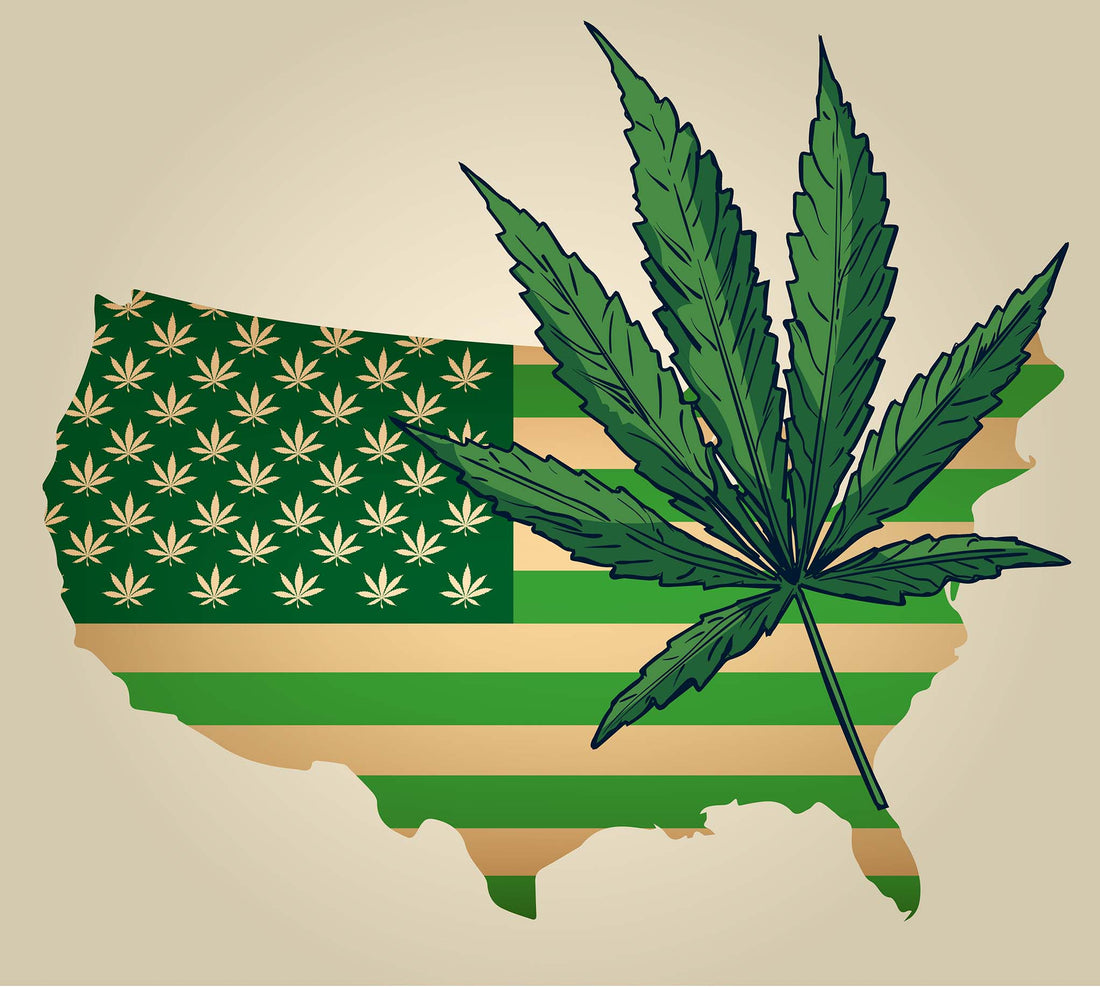
The Legal Landscape of Hemp and THC: Understanding Federal and Wisconsin Laws
Share
The hemp industry has seen substantial growth in recent years, largely due to legal changes on both federal and state levels. Understanding what makes hemp and THC products legal requires a deep dive into the laws that govern these substances, especially those distinguishing between hemp and marijuana.

The Federal Landscape
The legality of hemp and its derivatives was fundamentally changed by the Agricultural Improvement Act of 2018 (commonly known as the 2018 Farm Bill). This legislation legalized the cultivation of hemp—defined as cannabis containing less than 0.3% delta-9-tetrahydrocannabinol (THC)—on a federal level by removing it from the Controlled Substances Act (CSA). This change is rooted in an amendment to Section 102(16) of the CSA, which excluded hemp from the definition of marijuana, thus removing it from the schedule of controlled substances.
The 2018 Farm Bill specifically amended 21 U.S.C. § 812, allowing hemp to be legally grown and processed for various purposes, including industrial and commercial products like CBD. Importantly, while hemp was federally legalized, it is strictly regulated, and any cannabis plant containing more than 0.3% delta-9 THC is classified as marijuana, a Schedule I substance under federal law.
Hemp and THC Derivatives
The distinction between different forms of THC is crucial in legal discussions. The most common psychoactive compound in cannabis, delta-9 THC, is the primary concern in both federal and state regulations. However, hemp plants can also produce delta-8 THC, a similar but less potent psychoactive compound. Delta-8 THC exists in a legal gray area under federal law, as it can be derived from legally grown hemp, making it not explicitly regulated by the 2018 Farm Bill. The U.S. Drug Enforcement Administration (DEA) has not provided comprehensive guidance on delta-8, creating a patchwork of state regulations on its legality.
Wisconsin’s Hemp Regulations
In Wisconsin, hemp cultivation became legal in 2018 through the state’s Act 100, which aligned Wisconsin law with federal regulations under the 2014 and 2018 Farm Bills. This allowed licensed farmers in Wisconsin to grow and process hemp, provided the crop contains less than 0.3% delta-9 THC. The Wisconsin Department of Agriculture, Trade, and Consumer Protection (DATCP) oversees the state’s hemp program, ensuring that producers comply with both state and federal requirements.
Regarding THC, Wisconsin’s laws are nuanced. Psychoactive delta-9 THC remains illegal unless it is derived from hemp and stays within the 0.3% threshold. This is similar to many other states where hemp-derived products, such as CBD and delta-8 THC, are legal, but marijuana remains tightly regulated or prohibited.
Delta-9 THC and the Controlled Substances Act
The pivotal change in the legal treatment of THC comes from its relationship with the Controlled Substances Act (CSA). As outlined in Section 102(16) of the CSA (21 U.S.C. 812), hemp—defined by its low delta-9 THC content—is now excluded from the definition of marijuana. However, any cannabis plant or product exceeding the 0.3% delta-9 THC threshold is still considered marijuana and is therefore subject to strict federal control.
As a result, while products like hemp-derived CBD and delta-8 THC can be legally sold and used under federal law, delta-9 THC remains federally restricted unless produced from hemp within the legal THC limit.
Potency
The 0.3% is based on a dry-weight basis from the plant. This allows manufacturers and producers to combine the Delta products from several plants to make high potency distillate or similar. Most of these mixtures are in the 20% range of Delta. This allows for the exact same compounds and levels found in marijuana edibles to be in hemp derived edibles. These distilates are heavily tested for other bad compounds like fertilizers, metals, etc to ensure they are safe for consumption.
As a consumer, it is important to ensure you are buying products that are transparent and contain links on their products to COA (Certification of Analysis) by recognized labs.
State-Level Variations
While the 2018 Farm Bill legalized hemp at the federal level, individual states have their own regulations that either align with or deviate from federal law. Some states, such as Colorado and California, have fully legalized marijuana, while others, like Wisconsin, only permit hemp-derived products.
In Wisconsin, CBD oil derived from hemp is legal, provided it complies with state and federal regulations. However, the legality of delta-8 THC and other novel cannabinoids varies, with some states outright banning delta-8 products. Consumers and producers must navigate a complex legal environment that differs from state to state.
Conclusion
The legal landscape surrounding hemp and THC is complex, driven by the federal government’s changes under the 2018 Farm Bill and nuanced further by state-level regulations. In Wisconsin, hemp cultivation and the sale of hemp-derived products like CBD and delta-8 THC are permitted under strict regulatory conditions. The legal distinction between hemp and marijuana hinges on the 0.3% delta-9 THC threshold, with any product exceeding this limit remaining federally illegal. As both state and federal laws evolve, those involved in the hemp industry must stay informed to ensure compliance with this ever-changing legal framework.
